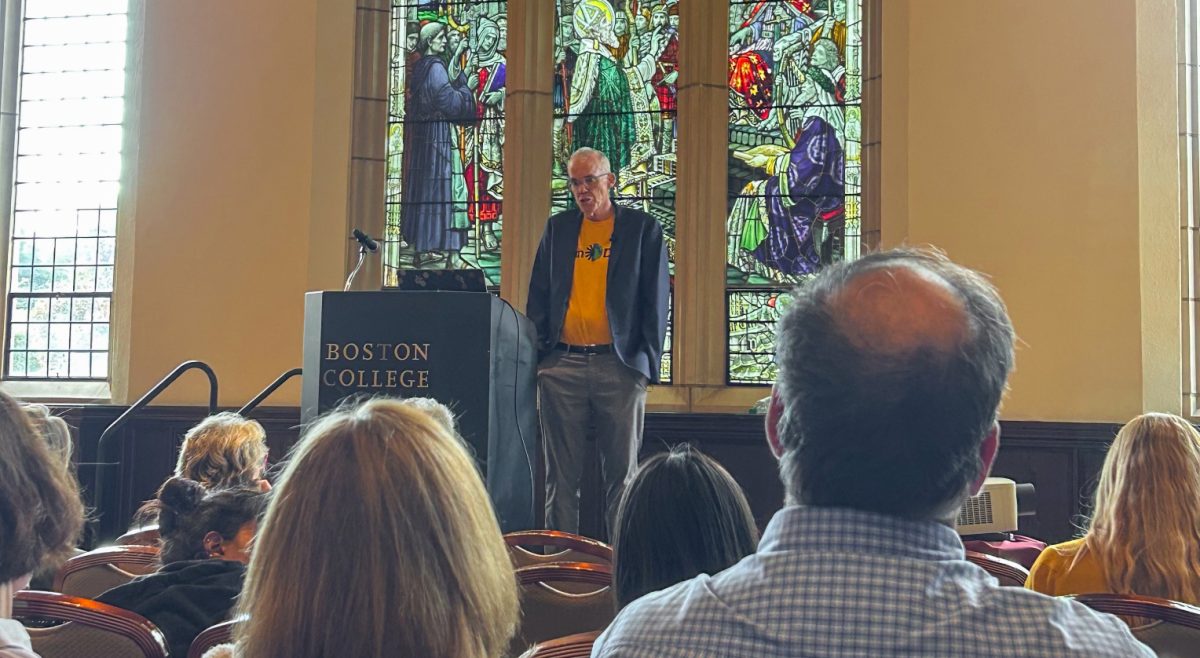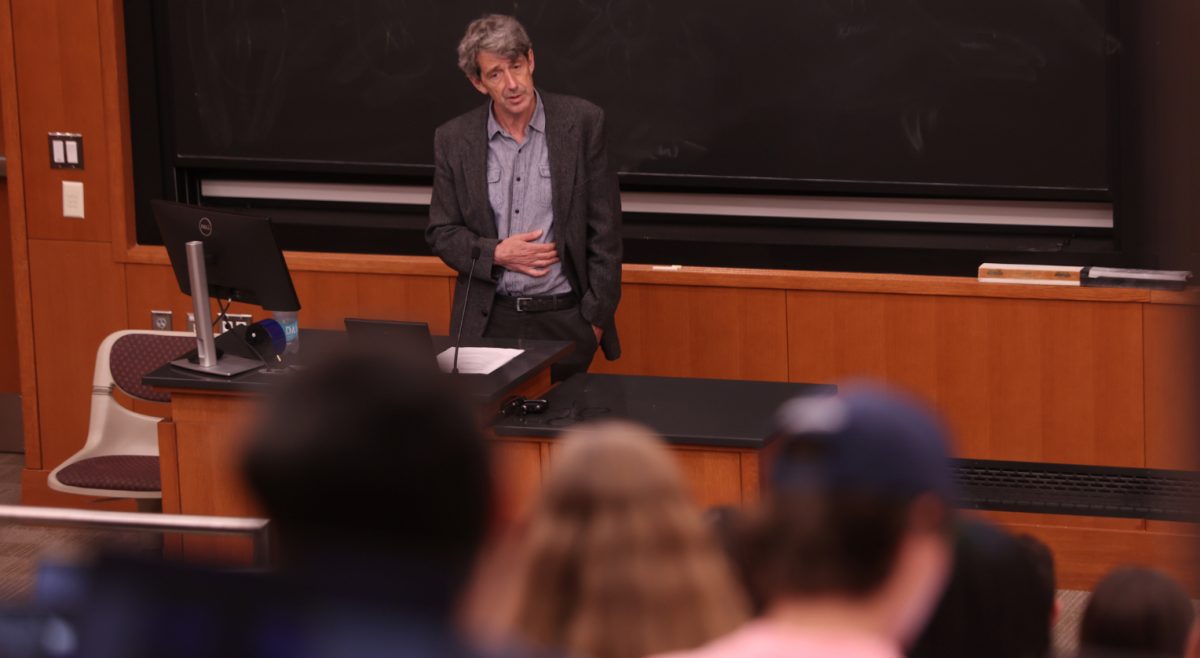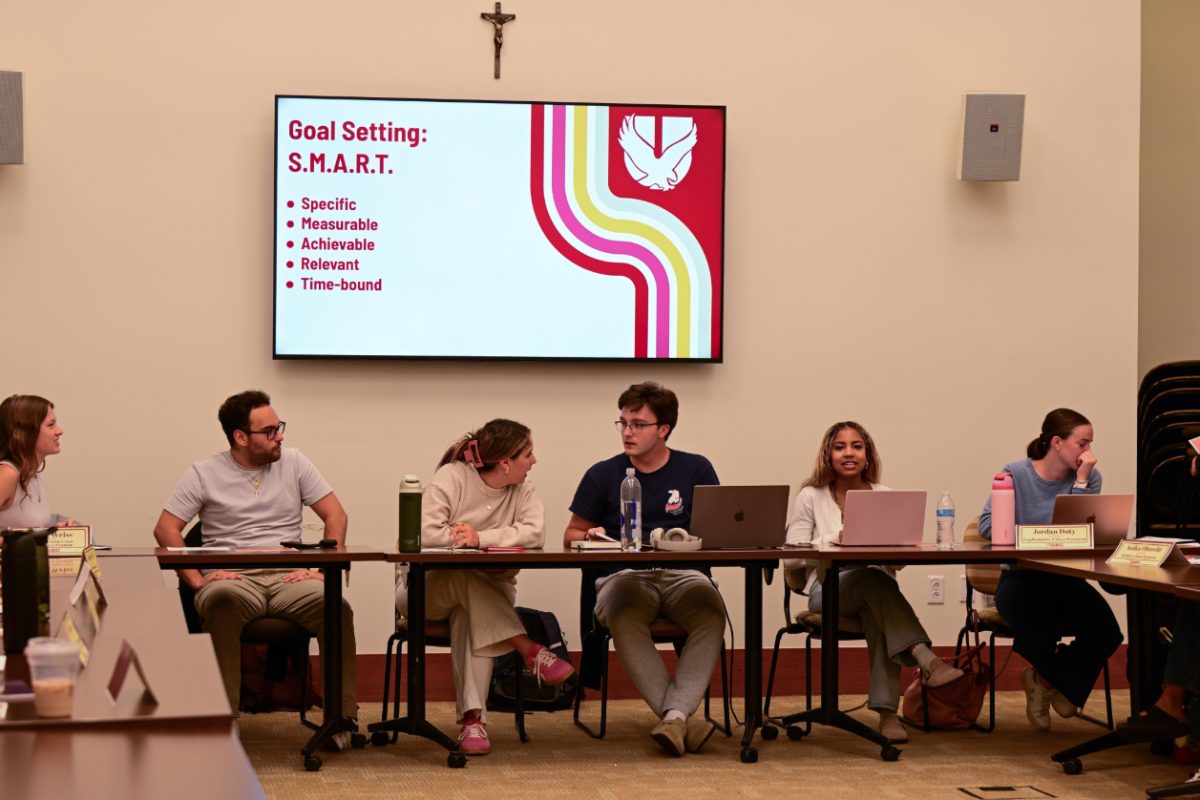Bill McKibben, a world-renowned author and climate justice activist, made the case Monday evening for why climate justice is a worthwhile fight—and why clean energy is far more realistic than people think.
McKibben is often credited as the “founder of the climate movement,” according to Juliet Schor, a professor of sociology at Boston College.
“I’ve spent most of my life sharing bad news with people,” McKibben said.
Throughout the lecture, however, McKibben spent much of his time sharing an uplifting message with the audience: Clean energy is cheaper, more efficient, and easier to access than fossil fuels.
His new book, Here Comes the Sun: A Last Chance for the Climate and a Fresh Chance for Civilization, focuses on clean energy progress made around the world, intended to inspire hope that the United States can soon follow suit.
McKibbon said factories in China are producing solar panels at never-before-seen rates, leading to cheap, well-built access to clean energy. That shift, he noted, has helped European nations make the switch to clean energy.
One such case is Germany, where the government has begun to rely heavily on solar panels and wind energy after committing to 80 percent renewable energy by 2030, according to McKibbon.
Other countries benefiting from China’s increased production of renewable energy resources are the ones that border it, like Pakistan.
McKibbon said Pakistan’s energy grid is unreliable and expensive. As a result, people took matters into their own hands, buying solar panels directly from China at low costs and installing them themselves—a shift that McKibbon said significantly reduced the nation’s reliance on fossil fuels.
Anna Staton, MCAS ’28, who attended the lecture, said she felt McKibben struck a balance between the strengths and shortcomings of the climate justice movement.
“McKibben did a good job of providing a sense of hope, but also the realities of the climate crisis and how dire the situation is,” Staton said.
While McKibben acknowledged that the United States hasn’t been moving in a “clean energy” direction since the Reagan presidency, he blamed many of our current energy failures on the Trump administration and its obsession with the fossil-fuel industry.
“The democracy that we spent our lives taking for granted is now very much in question,” McKibben said.
It’s not all negative news in the United States, though.
McKibben emphasized pockets of hope within the country, like California’s use of renewable energy, which has decreased its natural gas consumption by 40 percent over the past two years. In Texas, an emphasis on free-market energy has allowed wind and solar energy to thrive in local communities.
Despite the federal government’s reluctance to commit to clean energy, McKibben shared ways in which the audience can make waves at the local level. “Sun Day,” celebrated on Sept. 21, was created to convince local leaders that wind and solar energy are the future, and cities across the country will be observing the holiday as people advocate for change.
“I think it’s easy to have an attitude of throwing your hands up and giving up,” Staton said. “It’s really important that, especially as a young person, you try to make a difference in any way you can.”







